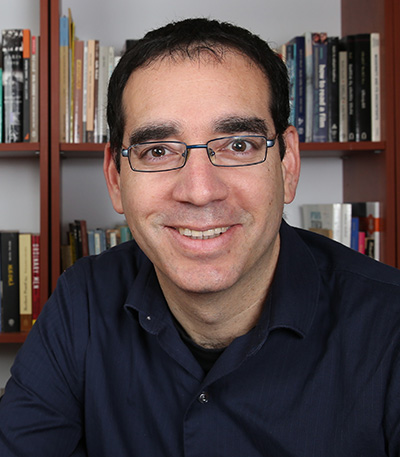On Monday, November 5, the Appalachian State University and broader communities are invited to a public lecture by Dr. Ofer Ashkenazi, the Director of the Richard Koebner Minerva Center for German History and a Senior Lecturer in the History Department of The Hebrew University, Jerusalem, Israel. His lecture is entitled “The Invention of the German Landscape by Jewish Filmmakers, 1918-1968” and will start at 7:00 pm in Belk Library and Information Commons, Room 114 on the ASU campus (218 College Street). The even is free of charge and no tickets are required. In the wake of national catastrophes, Heimat imagery played a vital role in the German identity discourse both during the Weimar years and in the early decades of the Cold War. While the significance of Heimat films within this trend is well documented, the fundamental contribution of Jewish artists to the formation of the Heimat film genre has been surprisingly overlooked. The talk analyzes the ways Jewish filmmakers in Germany appropriated conventional Heimat imagery in order to participate in and influence the constitution of the German nationality. In manipulating and de-contextualizing Heimat iconography, prominent Jewish filmmakers were able to introduce the aspirations and fears of integration-seeking outsiders—i.e., of German-Jews—into mainstream perceptions of German identity. Dr. Ashkenazi’s lecture demonstrates the various ways Jewish filmmakers utilized Heimat imagery, from Ernst Lubitsch and E.A. Dupont’s early parodies of the Heimat idyll to the somber portrayals of the German landscape in the Cold War films of John Brahm and Konrad Wolf. It shows that, regardless of the different settings, these filmmakers used similar means to advocate an alternative notion of a German national community, which thrives in an alternative Heimat, devoid of its blood and soil connotation. Dr. Ashkenazi is a specialist in Central European cultural and intellectual history, modern visual culture, and Jewish urban experiences in twentieth-century Europe. He holds a PhD in History from The Hebrew University in Jerusalem, Israel, conducted post-doctoral research at the University of California, Berkeley, and taught at the University of Minnesota. He joined the faculty of Hebrew University in 2013 and took over the directorship of the Richard Koebner Minerva Center for German History, one of Israel’s foremost institutions in German Studies that cooperates with major universities in Germany, Europe and around the world and trains Israeli graduate students. Dr. Ashkenazi is the author of Weimar Film and Modern Jewish Identity(Palgrave-McMillan, 2012) and A Walk Into the Night: Reason and Subjectivity in the Films of the Weimar Republic (Am Oved, Hebrew, 2010). He has also penned numerous articles on various topics, ranging from the immigration of German-Jewish athletes to Palestine to comic representations of Nazism and the multivalent politics of Albert Einstein. His third book on Anti-Heimat Cinema: The Jewish Invention of the German Landscape will soon be published. On Tuesday, November 6, there will also be a lunch research colloquium hosted by the Center in Edwin Duncan Hall. It will focus on short pre-circulated texts by our guests on Jewish photography and film in mid-twentieth century Central Europe and Palestine. The event is open to all ASU students and faculty. RSVP required. For more information, contact the Center for Judaic, Holocaust and Peace Studies at holocaust@appstate.edu or call 828.262.2311. Organized by the Center, the visit is co-sponsored by the Departments of Anthropology, English, History, Languages, Literatures and Cultures, the Office of International Student Education and Development, the Office of Multicultural Student Development, the Honors College, the Film Studies Concentration, University Documentary Film Services, the local chapter of Hillel, ASU’s Jewish fraternity AEPi, the Temple of the High Country, the Peace and Genocide Education Club, the North Carolina German Studies Seminar and Workshop Series, UNC-Chapel Hill, and the Holocaust Educational Foundation, Illinois. ### About the Center for Judaic, Holocaust and Peace Studies Appalachian State University's Center for Judaic, Holocaust, and Peace Studies was founded in 2002 to develop new educational opportunities for students, teachers, and the community. Located administratively within the College of Arts and Sciences, the Center seeks to strengthen tolerance, understanding, and remembrance by increasing the knowledge of Jewish culture and history, teaching the history and meaning of the Holocaust, and utilizing these experiences to explore peaceful avenues for human improvement and the prevention of further genocides. The Center for Judaic, Holocaust, and Peace Studies is an associate institutional member of the Association of Jewish Studies, a member of the Association of Holocaust Organizations, and of the North Carolina Consortium of Jewish Studies. |
 Hebrew University (Jerusalem) Center Director to Speak on Jewish Filmmakers and Heimat
Hebrew University (Jerusalem) Center Director to Speak on Jewish Filmmakers and Heimat